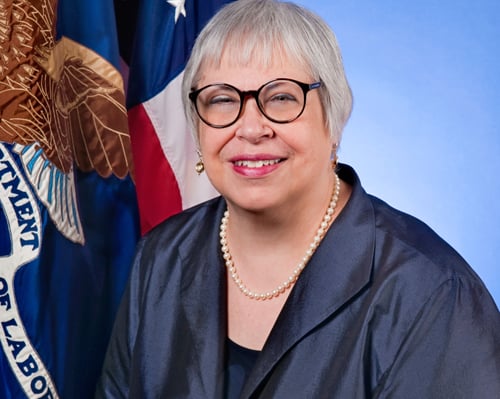In the middle of a presidential election year, it's natural to focus on the combat for the White House. The real impact of the vote this November, however, will be felt at the regulatory level by the personnel who are appointed by the president and implement financial-services rules.
Two events this week in Washington highlighted the power of regulators. First, Phyllis Borzi, assistant secretary of labor and head of the Employee Benefits Security Administration, said that the Labor Department will coordinate with but act independently of the Securities and Exchange Commission in promulgating rules surrounding fiduciary duty.
“I absolutely will not promise anybody that there will be a single fiduciary standard because that's impossible,” Ms. Borzi told the
Society of Professional Asset Managers and Record Keepers' national conference on Monday. “Compliance with one standard will not put you out of compliance with the other standard. It doesn't mean a single standard; it does mean a compatible standard.”
That's not the answer that the financial industry wants to hear. Its lobbyists are trying to stop the DOL rule, in part by suggesting that DOL and the SEC should come up with one standard. They say the DOL rule is overreaching and would subject IRAs to retirement-law fiduciary duty for the first time, potentially driving brokers out of the IRA business.
But Ms. Borzi is hanging tough. She has vowed to re-propose the fiduciary-duty rule this year – although it now looks as if it will be delayed beyond the election.
“Phyllis is not going to back down,” Steve Saxon, a principal at Groom Law Group, said at the Spark conference.
Indeed, Ms. Borzi sent a letter to the Republican chairman and Democratic ranking member of the House Education and Workforce Committee on Wednesday updating them on the progress of the fiduciary-duty rule. She explained that DOL is coordinating with the SEC, that it is conducting an enhanced cost-benefit analysis and that the re-proposed rule would include guidance on prohibited transactions.
What she didn't say is that she has any intention of withdrawing the regulation for good.
Similarly, SEC Chairman Mary Schapiro is trying to forge ahead on money market fund reform. She stepped into the firing line on Thursday when she
appeared before the Senate Banking Committee to discuss the topic.
She fielded bipartisan skepticism from lawmakers. In a separate panel, industry representatives ripped the money fund changes the SEC has in mind – either a floating net-asset value or a capital buffer and redemption restrictions.
Although she faces passionate opposition to money fund reform from outside the SEC and skepticism among fellow commissioners inside the agency, Ms. Schapiro is sticking to her guns about money funds. She maintains that they are vulnerable to investor stampedes for the exit that will “break the buck,” or cause them to fall below the promised $1 NAV.
“More needs to be done,” Ms. Schapiro told senators. “That's because the incentive to run still remains. It is essential that we address this risk now rather than waiting until the middle of the next crisis.”
Employers, Wall Street firms and small advisory practices are all keeping an eye on regulatory activity – as well as what is happening in the politically brittle Congress.
“Almost everyone I talked to said their major concern was Washington,” Mr. Saxon told the Spark audience, relating recent meetings he had with Groom's corporate clients.
Whether Ms. Borzi and Ms. Schapiro will remain in their positions depends on whether President Barack Obama or former Massachusetts Gov. Mitt Romney wins the presidency in November.
If Mr. Obama prevails, they're both safe – although observers say that Ms. Schapiro will leave anyway after the election. She likely would be succeeded, however, by someone with a similar regulatory approach, if Mr. Obama is making the choice.
So, if you're upset with the regulators, or if you like what they're doing, it should give you even more incentive to show up at the polls in November.







